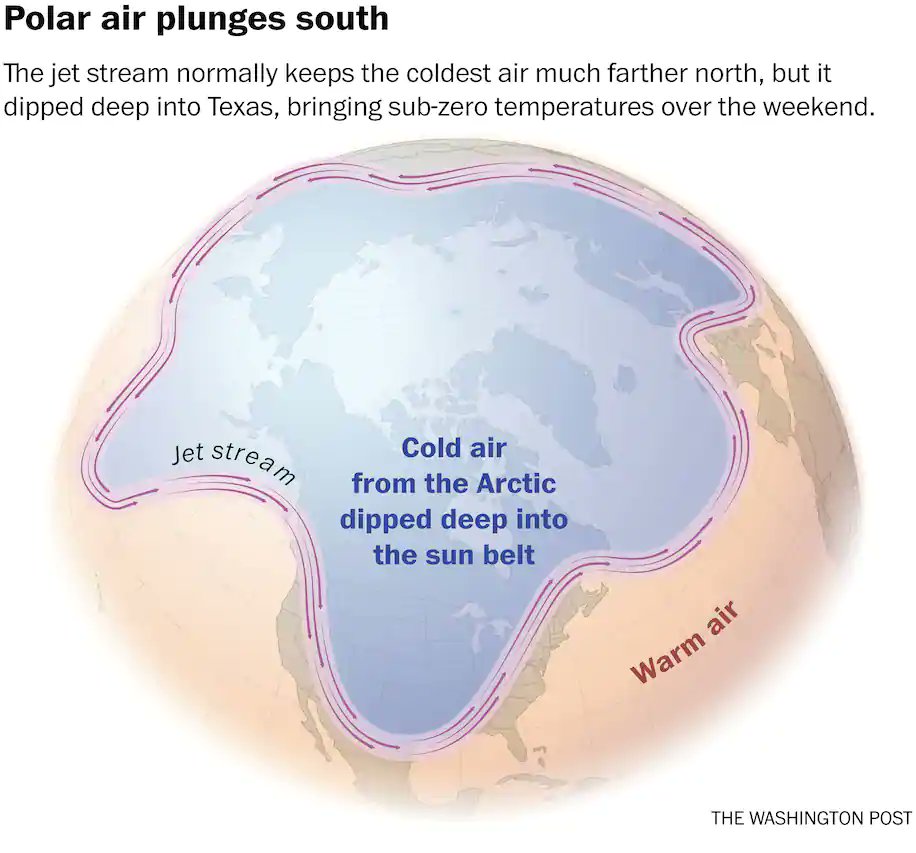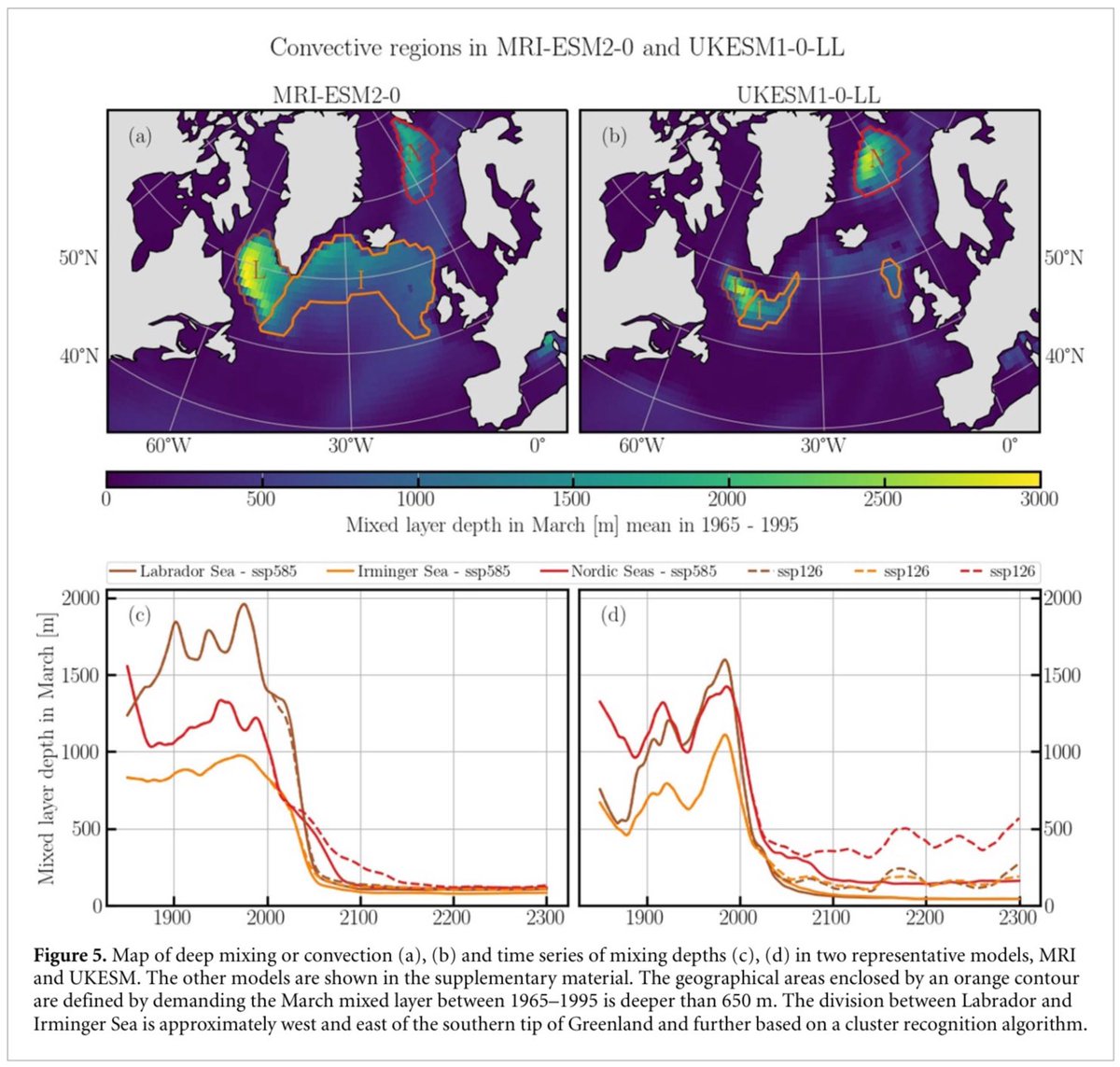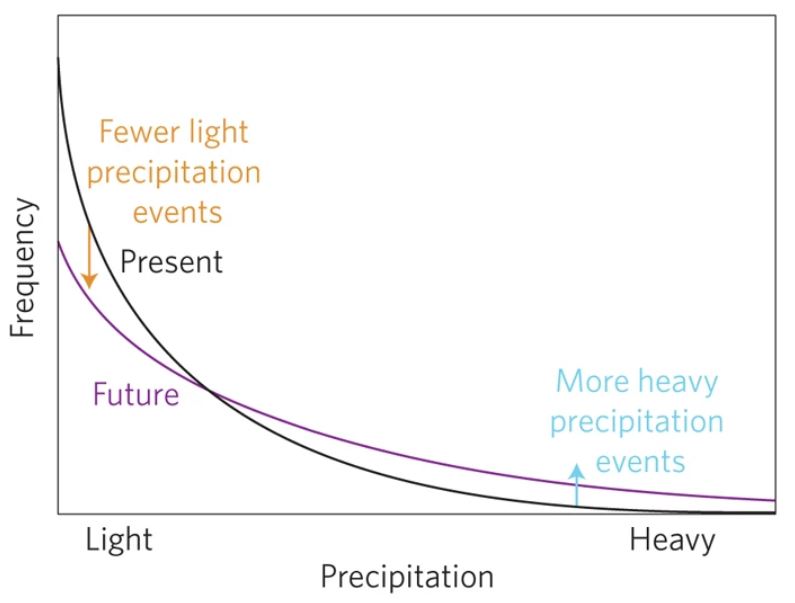Two competing effects influence our northern winters:
#1 Global warming.
#2 Increasing polar air outbreaks due to stratospheric polar vortex disturbances.
In the long run #1 wins - our winters are getting warmer. 1/🧵
#1 Global warming.
#2 Increasing polar air outbreaks due to stratospheric polar vortex disturbances.
In the long run #1 wins - our winters are getting warmer. 1/🧵

That's expected as #2 just happens occasionally, and polar air is also getting warmer.
Some people point to long-term warming trends to cast doubt on whether #2 is even real, but that is a non-sequitur. It just means #1 wins in the long run. 2/🧵
Some people point to long-term warming trends to cast doubt on whether #2 is even real, but that is a non-sequitur. It just means #1 wins in the long run. 2/🧵

That disturbed stratospheric polar vortex states are linked to polar air outbreaks and thus cold extremes either in Eurasia or the US is shown by data analysis: 3/🧵nature.com/articles/s4161…
Objective cluster analysis of polar vortex states shows that cluster 4 is linked to cold in the US, cluster 5 to cold in Eurasia. 4/🧵 

Do these clusters increase in prevalence? The reanalysis data shows they do over the period 1979-2018. And this can explain why Eurasian winters haven't warmed more: But of course that could be just due to random variability. 5/🧵 agupubs.onlinelibrary.wiley.com/doi/full/10.10…

On the other hand there are plausible mechanisms that link this increasing polar vortex instability to Arctic warming and sea ice loss. Causal effect network analysis (a data correlation method able to tease out causal links) suggests that: 6/🧵 journals.ametsoc.org/view/journals/…

Furthermore, analysis of 35 CMIP5 models shows that the sea ice loss effect, though weaker in the models than in the observational data, "can explain all of the projected ensemble-mean stratospheric polar vortex weakening": 7/🧵 wcd.copernicus.org/articles/1/715…

To finish off, a fun fact: in 2014 right-wing US commentator Rush Limbaugh claimed the polar vortex was invented by the left... Against that speaks that it's already in the 1959 AMS Glossary of Meteorology. 8/🧵 
https://x.com/alroker/status/420704553445883905?s=20

• • •
Missing some Tweet in this thread? You can try to
force a refresh
















